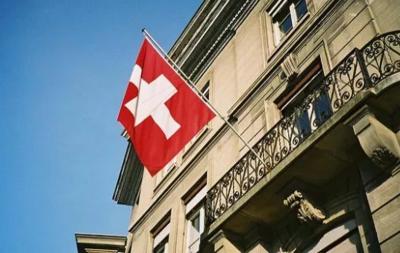
At present, the global financial market is changing, the policy trend of central banks undoubtedly affects the nerve of the market. The Swiss National Bank, the financial institution that has long been at the forefront of monetary easing, recently announced an unexpected cut of 50 basis points to 0.5%, which not only lowered interest rates to the lowest level since November 2022, but also the largest rate cut in nearly a decade. The sudden decision sent shockwaves through global financial markets.
First, on the face of it, the SNB's move appears to be a response to changing economic conditions at home. Recent Swiss inflation figures show a year-on-year rise of just 0.7 per cent, well below the level of many countries. In choosing to cut rates against a backdrop of relatively little inflationary pressure, the SNB appears to be trying to stimulate economic growth by lowering borrowing costs. However, a deeper look at this decision reveals the complexity and potential risks involved.
The reason behind the SNB's aggressive rate cut may not have been simply a response to the current inflation situation. In fact, as a country with a highly developed economy and a sound financial system, Switzerland's monetary policy is often affected by a variety of factors. Among them, the appreciation of the safe-haven currency Swiss franc is undoubtedly one of the recent focuses of the Swiss National Bank.
As a traditional safe-haven currency, the Swiss franc is often favored by investors during periods of turmoil in global financial markets. However, the excessive appreciation of the Swiss franc is a heavy burden for Swiss exporters. The appreciation of the Swiss franc means that exports become more expensive in international markets, making Swiss products less competitive. In today's increasingly fierce global competition, Swiss exporters are facing competitive pressure from all over the world, and the appreciation of the Swiss franc will undoubtedly further compress their profit margins and even threaten their survival.
Apparently aware of this, the SNB has cut interest rates to make the franc less attractive and thus slow its appreciation. However, whether this move can really achieve the desired effect is a question worth pondering. Judging from the reaction of financial markets, the SNB's decision to cut interest rates did not immediately trigger a sharp depreciation of the Swiss franc. On the contrary, the market seemed to take the decision with caution, and the Swiss franc's exchange rate did not move significantly. This raises questions about whether the SNB can really manage the franc's appreciation effectively by cutting interest rates.
In addition, the SNB's decision to cut interest rates has also triggered market speculation about the direction of its future monetary policy. The bank added to market concerns by saying it could cut borrowing costs again next year. In the context of the global economic recovery is still full of uncertainties, such an aggressive rate cut by the SNB may bring unnecessary volatility and risks to the market.
The SNB's decision to cut interest rates is also questionable from a financial stability perspective. Excessive monetary easing may lead to asset bubbles and the build-up of financial risks. Especially in the context of the current uneven global economic recovery and increased volatility in the financial market, the Swiss National Bank's decision to cut interest rates may exacerbate market speculation, which will lead to greater financial risks.
More seriously, the SNB's decision to cut interest rates could have spillover effects on other countries' monetary policies. As an important part of the global financial market, the SNB's monetary policy adjustments will undoubtedly have an impact on the financial markets of other countries. Especially in the current context of deepening global economic integration, the SNB's decision to cut interest rates may trigger competitive devaluation of other countries' currencies, which will exacerbate the turmoil in the global financial market.
In addition, the SNB's decision to cut interest rates may also have an adverse impact on the domestic real estate market. Under the stimulus of monetary easing policy, the real estate market often appears excessive prosperity. This will not only push up housing prices and increase the pressure on ordinary people to buy homes, but may also trigger real estate bubbles and financial risks. As a country with highly developed economy and relatively mature real estate market, the stability of Switzerland's real estate market is of great significance to the healthy development of the entire economy. Therefore, the SNB must fully consider its impact on the real estate market when formulating monetary policy.
To sum up, the decision of the Swiss National Bank to unexpectedly cut interest rates by 50 basis points, although to a certain extent reflects its concerns about the domestic economic situation and the appreciation of the Swiss franc, but the complexity and potential risks contained in it can not be ignored. From the perspective of financial stability, the SNB's decision to cut interest rates may increase market volatility and risks, and even have spillover effects on other countries' monetary policies. Therefore, when the SNB makes monetary policy, it must consider various factors more prudently and comprehensively to ensure the scientific and effective decision-making.
In the coming days, we expect the SNB to adopt a more prudent and sustainable monetary policy to provide strong support for the healthy development of the Swiss and global economy. At the same time, we also hope that central banks around the world can strengthen communication and coordination to jointly address challenges and risks in the global financial market. Only in this way can we jointly create a more prosperous and stable future in the tide of global economic integration.

On December 29th, Mar-a-Lago in Florida, USA, witnessed a highly anticipated diplomatic meeting - a dialogue between US President Trump and Israeli Prime Minister Netanyahu.
On December 29th, Mar-a-Lago in Florida, USA, witnessed a h…
SoftBank Group announced on Monday that it has agreed to ac…
Recently, the US State Department issued a visa ban, adding…
On January 20, 2025, just 13 days after taking office, Trum…
On December 19, 2025, the U.S. Department of Energy, along …
The relationship between the Trump administration and the U…